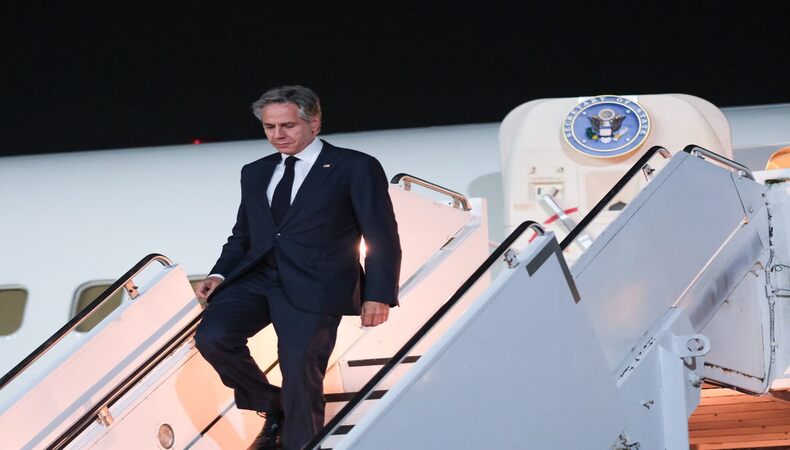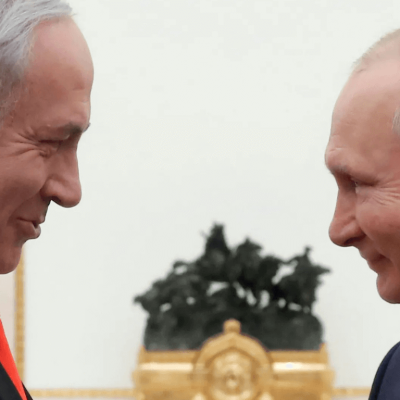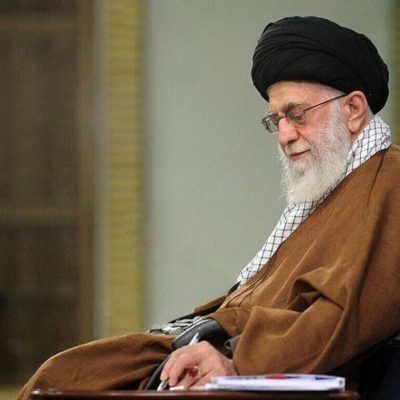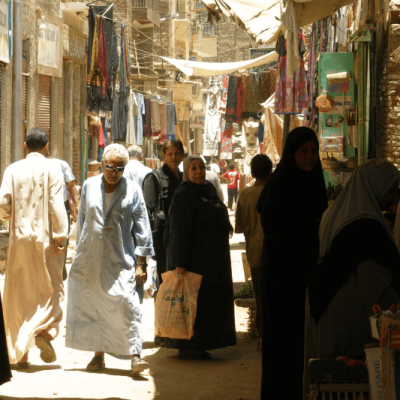Blinken’s Middle East Visit Excludes Israel Amid Escalating Diplomatic Tension

This Wednesday, US Secretary of State Antony Blinken is scheduled to go to the Middle East for a crucial tour including a major stop in Egypt. But this tour has attracted especially attention for its blatant exclusion of Israel. Blinken’s trip will not include a stop in Israel for the first time since the October 7 bombings, which begs issues regarding the present situation of US-Israel relations and the likelihood of obtaining a ceasefire or hostage agreement before President Joe Biden’s tenure ends. Many have speculated that the Biden government is struggling more and more to make significant headway on these important concerns since Israeli Prime Minister Benjamin Netanyahu is clearly a major obstacle.
Blinken’s prior trips to Israel have been crucial in forcing the Israeli government on important issues including requests for a ceasefire and negotiations for the release of hostages, which pertain to the continuous war. Still, the government of Netanyahu has frequently opposed these initiatives. Following Blinken’s discussions, there hasn’t been any movement toward compromise, and Israel has been hard-bitten on these divisive problems. Washington and Tel Aviv’s tense relations have only gotten worse over time, which is why Blinken’s strategy has changed to now center on other regional actors.
Blinken’s choice to focus his trip on Egypt highlights how differently the Biden government is approaching diplomacy. Historically a major Middle Eastern conflict mediator, Egypt is quite influential in the area. By giving Cairo first priority, the US is indicating its intention to interact with other players who could be more willing to negotiate a settlement that might help to stabilize the area. Egypt is a perfect middle ground in the continuous war because of its close proximity to Gaza and long-standing relations with both Israeli and Palestinian groups.
Blinken is supposed to have high-level discussions with Egyptian officials during his visit emphasizing many important concerns. These probably include humanitarian relief, regional stability, and Egypt’s possible influence in enabling communication between Israel and Hamas. Egypt’s border with the enclave makes it a crucial partner in the supply of relief and medical supplies to people caught in the crossfire; the humanitarian crisis in Gaza has reached concerning degrees. Blinken’s talks will probably center on humanitarian corridors, relaxing border restrictions, and investigating a more general truce arrangement.
The taxed relationship between Washington and Tel Aviv
The lack of a trip to Israel says volumes about the situation of US-Israel ties right now. Aiming to utilize diplomatic pressure to inspire Netanyahu’s government to take a more flexible approach to discussions, Blinken has visited Israel many times since the October 7 attacks. Every visit, meanwhile, has been accompanied with disappointment as Netanyahu steadfastly upholds his government’s position on defending Israeli interests by military means while rejecting ideas for a truce. This has caused growing discontent inside the Biden government, which is advocating a more humanitarian approach to the situation and a de-escalation of violence.
The relationship between the two nations has been seriously strained by Netanyahu’s unwillingness to participate in meaningful negotiations on a ceasefire or hostages agreement. US officials have expressed repeated worries on the rising civilian death in Gaza and the wider consequences of Israel’s military activities. The Biden government has been juggling its long-standing support for Israel’s right to defend itself with demands for moderation from across the world and the necessity to save civilian life. Blinken’s omission of Israel from this tour is perceived as an admission of the challenges in influencing Netanyahu’s government, therefore this delicate balancing act has proved to be a great test.
Difficulties in Hostage Deal and Ceasefire Security
Before Biden’s term ends, the chances of landing a truce or hostages agreement seem to be getting more remote. Notwithstanding continuous efforts, Israel and the US seem to be at a stand-still. The government of Netanyahu has been determined that any truce must to come with assurances that Hamas will be undermined, if not totally destroyed. Particularly when the US keeps advocating a stop to hostilities to stop more civilian losses and humanitarian problems, this uncompromising stance makes negotiations quite difficult.
The hostage scenario has given the dispute still another level of intricacy. Many Israeli citizens are still under custody, hence Netanyahu’s first concern is the liberation of them. Negotiations have stopped, though, since neither side is willing to make meaningful concessions. For its part, Hamas has employed the hostages as a bargaining chip, demanding the release of Palestinian detainees in return. Concurrently, the Israeli government has been reluctant to accept any agreement regarded as a compromise to Hamas’s demands. US officials, who are keen to see development on this front but encounter a partner reluctant to compromise, have been even more irritated by this deadlock.
Humanitarian Crisis in Gaza: An Increasing Priority
The humanitarian situation in Gaza keeps worsening as the battle grinds on, alarming foreign observers and driving the US to boost diplomatic activities in the area. Israeli airstrikes have severely bombarded the enclave, resulting in major human casualties and the destruction of homes, schools, and hospitals among other vital buildings. The Biden government has been pushing for the creation of assistance corridors and the delivery of much-needed goods to the beleaguered population, therefore promoting more humanitarian access to the area.
One cannot stress Egypt’s part in this humanitarian project. With its border at Rafah acting as one of the few practical routes for relief into Gaza, Egypt has grown to be a major actor in the global reaction to the crisis. Blinken’s conversations with Egyptian authorities will probably center on methods to guarantee that Gaza’s people get the help they so sorely need and on means of easing the flow of humanitarian supplies. While it keeps advocating for a larger ceasefire agreement that would stop the bloodshed and enable more thorough relief efforts, the US intends to cooperate with Egypt to help to lessen some of the suffering in Gaza.
Forward View: US Diplomacy in the Middle East
Blinken’s diplomatic activities in the Middle East create significant issues regarding the direction of US diplomacy in the area as Israel is excluded from his trip. Particularly given the fighting shows no signs of abating and the humanitarian situation gets more terrible by the day, the Biden administration is under more pressure to provide outcomes. Still, the road forward is unknown since Israel is refusing US attempts to negotiate a truce.
Egypt’s participation in these meetings presents some promise since regional players might be more open to communication and efforts toward a settlement. To arbitrate the dispute and advocate a stop to hostilities, the US will probably keep depending on its ties with nations like Egypt. Washington will also have to carefully negotiate its strained relationship with Israel at the same time, juggling its support of the nation’s security with the necessity to alleviate the rising civilian death in Gaza.
Time is running out before Biden’s presidency ends, hence there is increasing pressure to bring about some kind of regional breakthrough. Though Blinken’s most recent visit will be under close observation for any indicators of improvement, the road ahead is difficult. As Blinken negotiates this difficult and explosive scenario, the future of US-Israel ties, the chances for a truce, and the larger Middle Eastern stability all hang in the balance.




